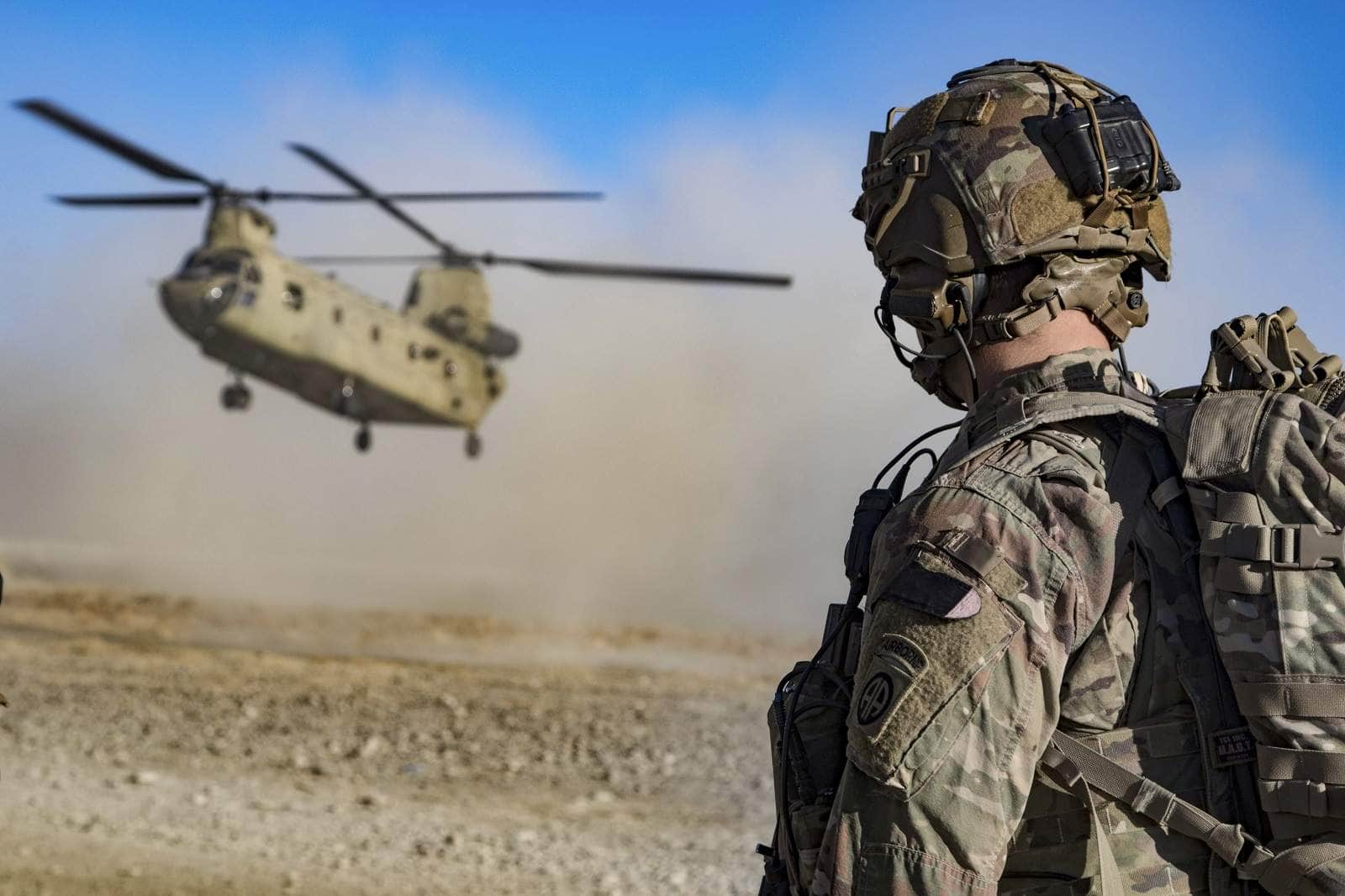Ten days ago, after a surprisingly rapid country-wide offensive, the Afghan capital Kabul fell to the hands of the Taliban. The fundamentalists announced the end of the war against Afghanistan as they took control of a greater part of the country’s territory. Ten days past and the West is still stunned by the Taliban’s capacity, the immediate collapse of the Afghan government and its military trained by the international forces. Shocking pictures of Afghan people desperately trying to leave the country and escaping the fundamentalists’ upcoming regime went viral, while the US political leadership still firmly cling to the opinion that there would not have been a better way to pull out.
What we could expect now and what was it like to serve in Afghanistan from the perspective of a Hungarian soldier? Mandiner asked József Kelemen, the former liaison group commander of the Provincial Reconstruction Team of the Hungarian Armed Forces (MH PRT) in Pul-e Homri between February and August 2010 responsible for inspecting and patrolling infrastructure projects in three districts of the Baglan Province.
What do your friends say about the security situation in Afghanistan now?
I am in contact with some of our former Afghan interpreters. When the first pictures came out on 15 or 16 August that Kabul had also fallen, I asked one of them if everything was okay. He managed to leave the country as early as 2017, but many of his family members are still in Afghanistan. They have a dark vision of the future and there is panic in the streets. I really hope that they will not be harmed because they helped us.
What happened to the former Hungarian military base in Pul-e Homri?
In 2013, we handed over the base to the local Afghan security forces. According to some local interpreters and what I have read in the press: the Taliban also took it over. I do not know to what extent they dismantled it. Because this is what usually happens: after leaving the bases, the locals take away every movable thing.
What could be the reason behind the collapse of the trained and equipped forces of the Afghan government just within a few days being under pressure of the Taliban forces?
I was also surprised that a trained army of 180,000 could disappear in a few days. I think it may have been demoralizing for them that Donald Trumps started negotiations with the Taliban in 2020, which indicated that American forces would leave Afghanistan. The Taliban have also begun a propaganda campaign a year ago proposing that ‘the Allies will soon leave the country, lay down your weapons and then no one will be hurt’. This statement has a psychological effect as well. In Afghanistan, people do not think in a frame of a state or a state army but family, tribe, ethnic group—genus—and then in the geographical area where they live. Loyalty to the state has no meaning there, patriotism does not apply to the state, but to the protection of their own tribe. Thus, it cannot be well understood for an Afghan that the insurgents have attacked them and they are facing them as an Afghan army.
As a liaison group commander, you met the tribal leaders in Baglan province and had to discuss specific projects with them. What respect did the Taliban have among them?
In the area where I worked were several Afghan groups present: the Taliban, the Hezb-i-Islamic group and others; local warlords were also active there.
It was hard to tell who was fighting against us and who was not a threat
It is important to understand that people living in cities and provincial capitals were the main beneficiaries of the Allies’ military and financial presence; there was a lot of development in larger settlements; they had better infrastructure, access to information and news. This urban society saw that they can live in a different way. Not as the rural population, who was less reachable for us. However, Taliban lived there and had partial support from this rural population. Why? Because in the countryside, in a tribal society, order is a highly appreciated value. The Taliban could bring order with their jurisdiction, along with their weapons, and protect the people from the corrupt Afghan legal system, which makes the fundamentalists if not likeable, but acceptable for the rural society.
What atrocities did you and your corps experience during your tenure? There were attacks and fatalities in the Hungarian PRT, as well.
The area we secured was a relatively peaceful area. Until 2009 there were no major atrocities in Baglan province. In early 2010, as coalition operations began in the south, more and more Taliban forces retreated to north, close to our territories. From March 2010 smaller attacks, fire exchanges occurred more frequently. An Afghan battalion under the mentoring of the Hungarian OMLT (Operational Mentoring and Liaison Team) also began an operation in the area at that time, thus armed clashes increased. It was a busy half year for our soldiers.
Their trip home turned into a tragedy—11 years ago—as their convoy was heading to the airport it was attacked by an RPG and two of your fellow soldiers, Judit Pappné Ábrahám and György Kolozsvári were killed in that Taliban action.
Yes. We went home in separate phases. I went to the airport the day before, on the same road.
This means that if you were also assigned to that convoy, your fate could have been different. Does it come to your mind many times since?
Somewhat yes, but I rather remember it with pain and anger, since we were not there and could not help.
Many analysts explain that Western-type democracy is far from the Afghan culture and tradition, so America’s political goal to transform Afghanistan’s political system was doomed to failure. Does your own experience prove this or not?
My experience proves it, as well. Most Afghans were not receptive to this idea. Afghanistan is a country with a completely different value system. There was no chance to bring changes, not just because the Afghan leaders who came to power with the support of the Allies did not set a good example, but because there was corruption, in which they bought positions and were not interested in the welfare of the country. I think, the Allies realized in 2014 that it is not working, therefore, the combat maneuvers were stopped. They only played a supporting military role from then on in the country.
The main American strategic goal was to render it impossible to organize another terrorist attack against America in Afghanistan. The Taliban have made a promise for that. How do you see: can various jihadist organizations take root again in a Taliban-led country?
The original plan was to enter the country and eliminate al-Qaeda. Afterwards, international forces remained to prevent the formation of new terrorist groups and to precede any attacks from the country against Western countries. However, there was no action plan for a 10-20-year period, nor an exit strategy. According to the American-Taliban agreement, the Taliban will hinder forming new terrorist organizations in Afghanistan—we will see if they keep their promise. I can be optimistic, because the Taliban have changed a lot in the last 20 years: you can see how they handle the media; you can see a kind of democratization among them and the conclusion can be drawn that they want to create a legitimate state. They are bound to keep their promises.
What Joe Biden closes in September was a 20-year-long military mega-mission that was amazingly large in both volume and casualties. Seeing the current events, did it have a point? Does it have lasting results despite the losing war?
I have been thinking about this a lot, too. Did the many victims, the loss of more of our brothers have a point? I think it had: we helped a lot of Afghan people; we made their lives better. Significant improvements have been made in the areas of healthcare, education and infrastructure and we have raised the living standards of the locals. Everyone who served there gave his maximum. What has not been achieved, however, is to “teach” the Western mentality to the Afghans and eradicate local corruption.
Interview by: Tamás Maráczi, Mandiner







